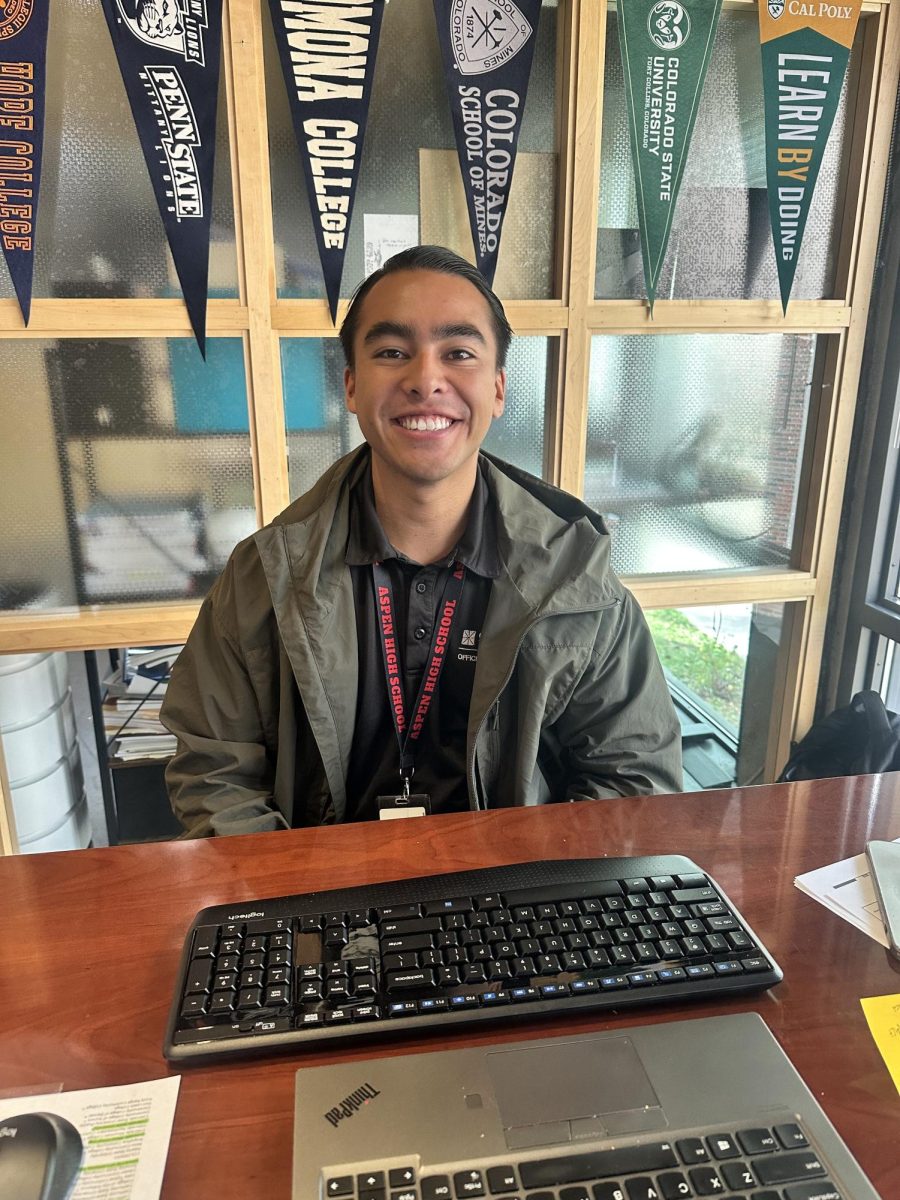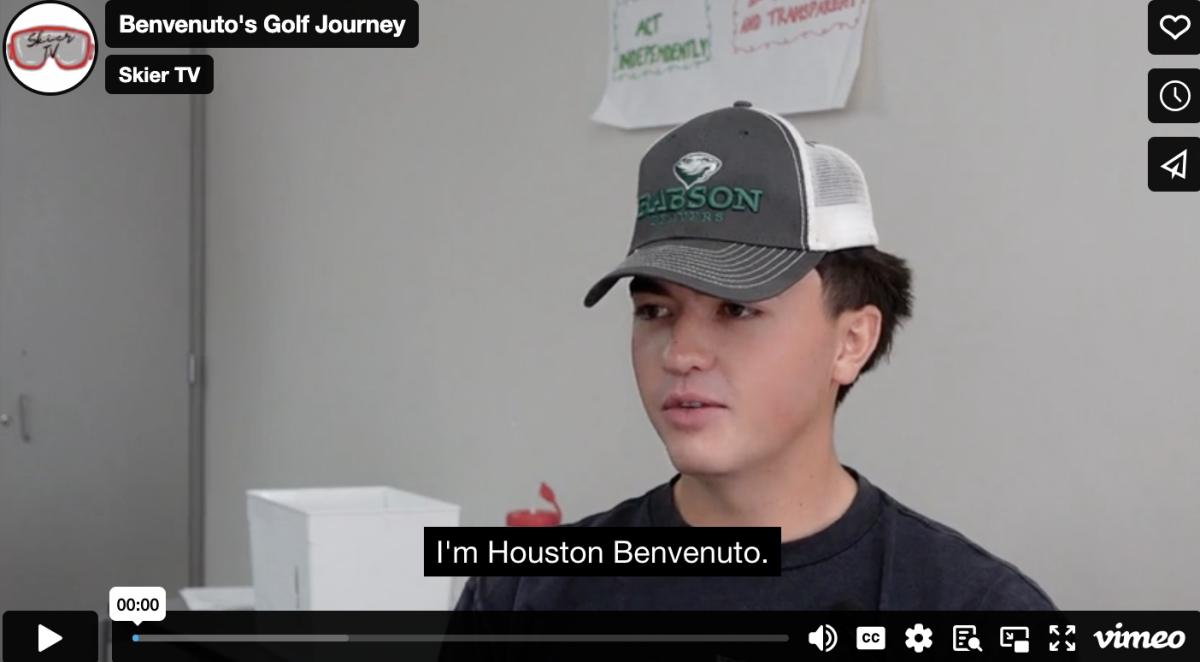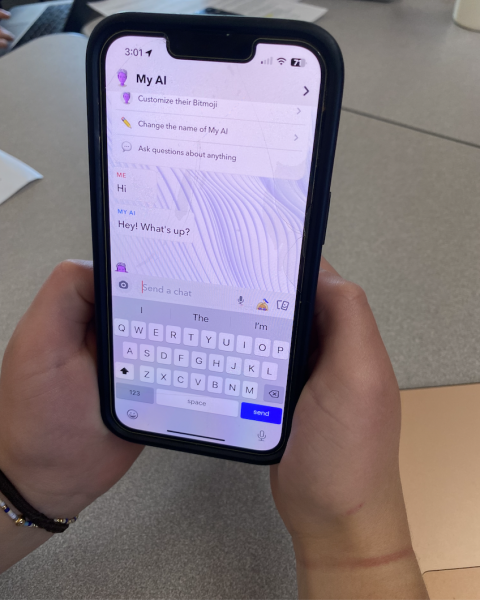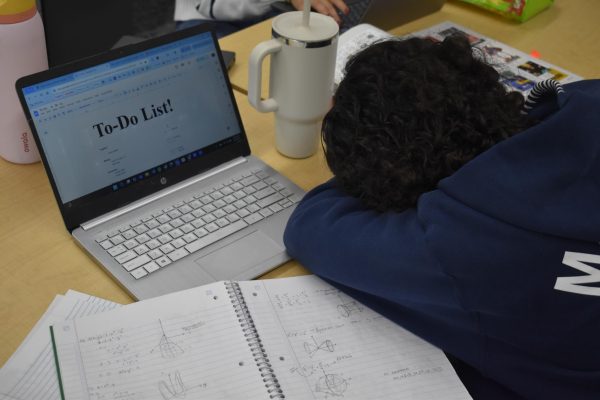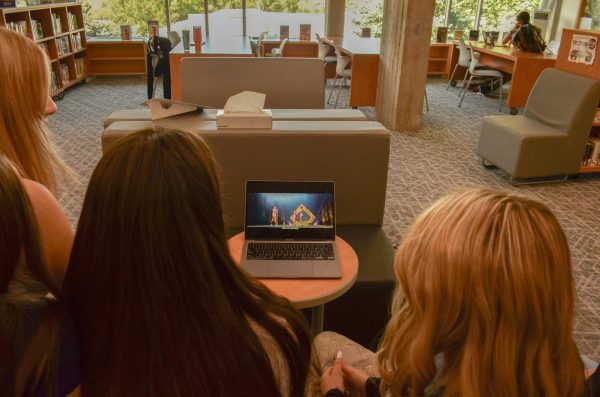Perspectives all around the world during COVID-19

Photo courtesy of Amarillo Area Foundation
“We’re all in this together”- A photo posted on amarilloareafoundation.org
The Coronavirus is a global pandemic, meaning that it not only has impacted lives, but people all over the planet. While news stations may give overviews on current situations around the world, they often lack a personal perspective of what living in another country during these times is like.
Slovakia-
Natalia Melova was an exchange student during the 2019-2020 school year at Aspen High School and had to travel back to her home country, Slovakia, due to the severity of COVID-19. Melova was unable to finish out her year in the US once the school district closed. She is under 18 and was able to go to her home immediately and begin quarantine for 14 days after returning to Slovakia. If she were an adult, Slovakian border police would have sent her directly to a special Slovakia adult quarantine for the two-week quarantine duration.
The rules put in place in Slovakia are similar to the United States and many other countries; however, the country has taken a slightly more strict and regulated approach to stop the spread of the virus.
“In Slovakia, everyone has to wear a mask everywhere. Our rules are very strict in this way, so don’t try to not wear it. When you break the rules you have to pay a lot of money. Police will take your ID number and send you the check which you have to fill,” Melova said.
It is important to remember that the stern rules in place are there to help people. Also, these strict rules are not just put in place in European countries, but all over the world.
Argentina-
Belu Montenegro and Sol Diluca are both high school students living in Bariloche, Argentina. Their school has also closed, and they are doing online school work. A few of the rules in Bariloche are no more than three people in the supermarket at a time, you must have permission from the municipality to circulate outside, and a mandatory shelter in place quarantine that began on March,19th. The situation in Bariloche has thankfully not gotten to a very serious point, but the conditions are still rough for many residing in Argentina.
“It is also hard for lots of people because we don’t have the best economy, and there are lots of poor people (and also lots of people that live in the street),” Montenegro said.
This virus is threatening to economies like Bariloche, and the policies put in place are for the greater good but can get a bit scary.
“The police are outside. It’s horrible, like a war. All of the country is like that. If you go out and the police see you or something like that, you go to prison or you have to pay a lot of money. It’s horrible. I want to see my friends, go outside, go to nature,” Diluca said.
Australia-
Sarah Ward is an Aussie college student studying on the east coast of Australia. Ward was finishing her last semester of a Journalism degree and due to the virus, she had to change her subjects around to graduate on time. She also had to continue the year with online learning.
Like Slovakia and Argentina, COVID-19 has not spread to many people in Australia and the situation has not gotten severe. Stern rules have also been put in place in Australia. However, the virus and regulations are not the only things impacting the east coast of Australia.
“I think, so far the economic impacts that we have faced from the virus are more worrying than the current health impacts. So many Australians have lost their jobs and their income which makes it stressful to pay for rent and groceries during these uncertain times. The government has been providing a lot of stimulus packages to try and help this, but it still has a major negative effect on the country, especially to workers and small businesses,” Ward remarked.
Like in most places around the world, panic arose in Ward’s area due to how rapid coronavirus began spreading. However, the strict rules seemed to have lessened panic and calmed people.
“There was a lot of panic buying a few weeks ago, and it was basically impossible to buy toilet paper or anything non-perishable, like canned veggies or pasta. Now, people have been told to settle down a bit, and everyone is a bit more civil about it. Since the new social distancing restrictions were introduced, our number of new cases is decreasing, and people are less panicked,” Ward said.
Norway-
Frida Husabø resides in Norway. The Norwegian government has implemented some limitations on what you are allowed to do during these times; however, they are not as strict as some other European countries. Despite the less strict rules, Husabø feels the situation is still being handled very well.
“Even though we are not the country with the most deaths or cases of coronavirus, it is a serious situation. Everyone is doing what they can to not continue spreading it. We have some limitations from the government and people seem to be taking it seriously. It is, of course, a strange situation to be in, but we see the degree of how important it is to stay at home and keep a distance from others,” Husabø said.
In Norway, if one assumes they have coronavirus, they are told they should quarantine, and if one has the virus, they are put in isolation and are fined if you break the solitude. Those who do not have the virus may go to the store and outside if you maintain a group no larger than 5, similar to the United States.
The culture in Norway, as well as the remoteness of the country, are also beneficial to slowing the spread of this virus.
“Norwegians are known for keeping to themselves a lot. It´s a very different culture from the US. And the fact that Norwegians are more retracted than a lot of other countries may have been a factor [in slowing the spread], “ Husabø said.
The silver lining-
No one is going through these strange and difficult times alone. All over the world, people are impacted by this virus, and in some places, the circumstances are harder than in others. Despite the current severity, the silver lining is that this virus is global connects us all.
“I think one thing that this virus has shown us is how globally connected we are and how quickly the actions of one country can spread to the entire world. So, we are all in this together, and if everyone does their part, we can all get through it,” Ward said.

Hannah Smith is a senior at AHS and an Editor-In-Chief of the Skier Scribbler. This is her third year writing for the paper. In her free time, Hannah loves...





